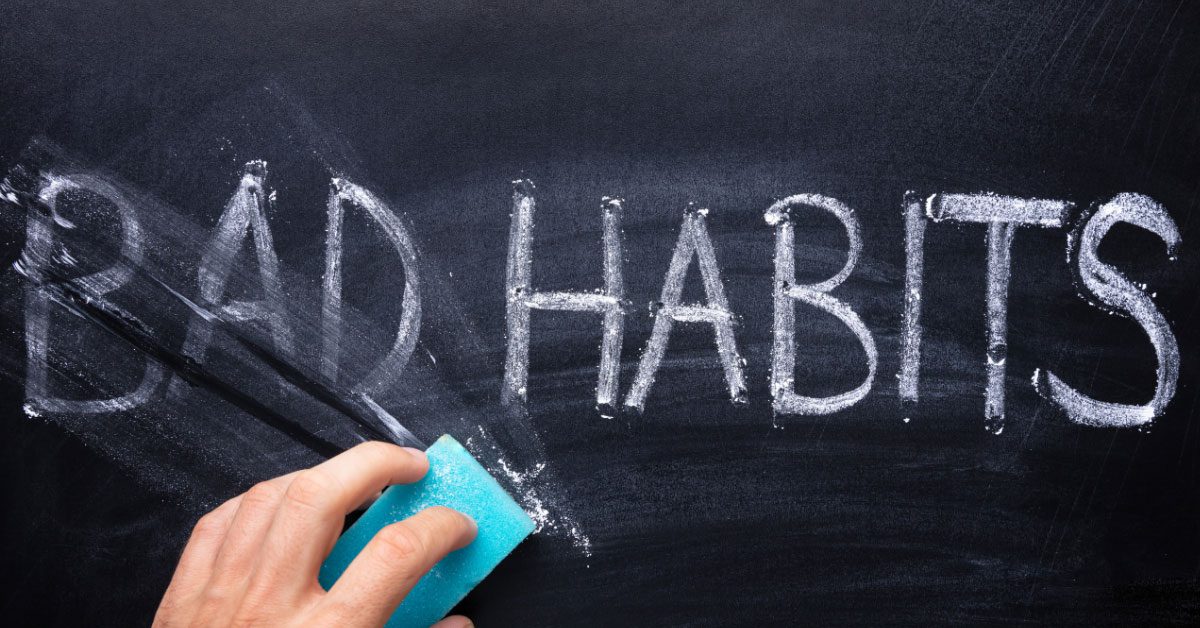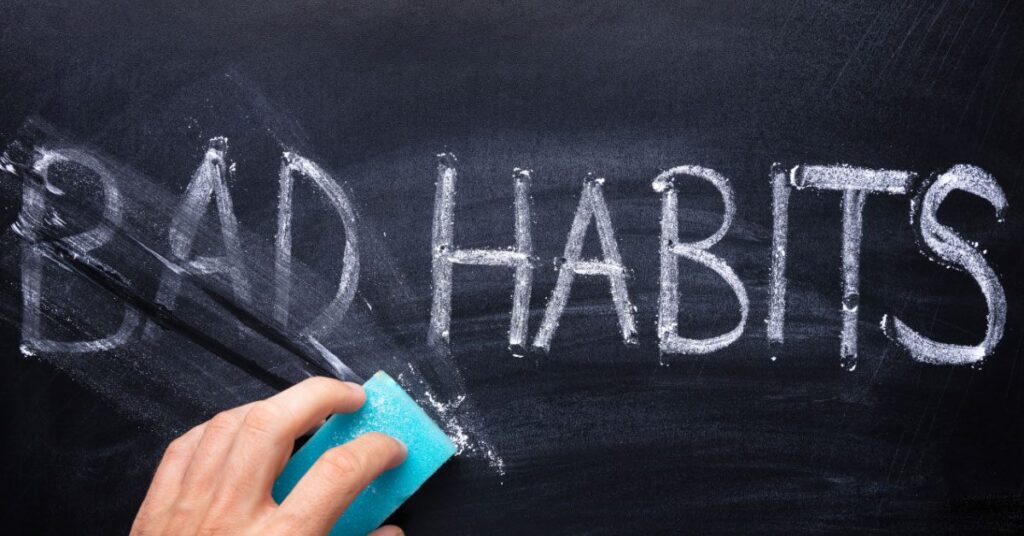Changing Bad Habits in Addiction Recovery
Embracing well-established recovery routines and changing bad habits when needed is essential and keeps people in long-term sobriety.
In recovery, identifying bad habits and changing them is just as vital as the decision to get clean and sober. Letting go of all addictive substances and behaviors is the key to a better life.
To obtain the type of life that all recovering addicts and alcoholics genuinely deserve, it is necessary to assess all bad habits honestly.

What Are Bad Habits in Sobriety Anyway?
Unlike the word suggests bad habits do something good for the person doing them but are called bad because of how ‘said’ habit affects physical health, mental health, and even emotional health. For people in recovery, they must pay attention to all three.
Generally, when people think of a bad habit, they name smoking and drinking too much. Yet, some bad habits are so typical they go unnoticed until they affect physical, mental, and emotional well-being, such as:
- Snacking on sugary treats
- Living a sedentary lifestyle
- Watching too much TV
- Staying up late
- Hyper focused on other people’s personalities or problems
- Engaging in negative self-talk
Why Are Habits Hard to Change for Recovering Individuals?
Habits are hard to change because they often sever a person’s personality. Sugar and sitting on the couch watching television are two gigantic dopamine rushes. All three engage the brain’s reward center and train the person to keep doing it all the time. Dopamine reinforces repeating behaviors to get the feel-good feelings that it causes.
Dopamine gives a person relaxation, mild euphoria, and joy. However, some habits also do not necessarily cause dopamine rushes but are repeated so often the person relies on them even though they are not as pleasant. Self-talk and overly focused on other people are prime examples of repeated behavior that becomes a bad habit.
What Do The Experts Say About Habits?
Harvard Medical School researchers discuss three reasons why a habit is formed. They also say to use it to your advantage by promoting a new healthy habit.
Everyone has bad habits they want to break, but instead of scorning yourself for being helpless to break them, use the fundamentals of forming habits to your advantage. Habits, good or bad, follow a typical three-step pattern. One way to describe this is the three Rs: reminder, routine, and reward. By breaking down the cycle of a bad habit, you can identify what triggers the routine and begin to address what needs to change. This way, you can establish a pattern for new and healthier habits. (Harvard)
Is Addiction the Same as a Bad Habit?
Essentially, a habit is a routine or regular behavior that becomes more difficult to give up over time. Addiction is similar, but it is not only hard to stop with time; it also causes serious negative consequences. For example, a bad habit of sitting around most of the day will lead to obesity and other health problems.
When a health consequence arises, most people will modify their lives and change a bad habit. Unfortunately, with drugs and alcohol, there is no way to limit use. Addiction is the loss of control of use and an inability to stop independently—still, many bad habits turn into addictions, such as overeating, smoking, and eating too much candy.
What Are Good Habits in Recovery?
The list of positive habits to have a reminder, routine, and reward for is nice and long. Embracing well-established recovery routines and changing bad habits when needed is essential and keeps people in long-term sobriety. Some of the best new habits to make that incorporate physical, mental and emotional support for the person in recovery includes:
- Regular Exercise
- Identifying and resisting the practice of negative self-talk
- Eating Healthy Foods
- Going to meetings regularly
- Prayer or meditation every day
- Calling family and friends every day
ON CALL Provides Holistic Therapy & Comprehensive Treatment For Addiction
Addiction can be helped with personalized treatment planning tailored to the needs of the individual. Effective treatment must be comprehensive, including holistic and evidence-based behavioral therapy methods. Our patients learn to recover and embrace the new life they have discovered from our in-depth treatment programs.
Let us help you get through the most challenging part of quitting. Going it alone just doesn’t work. We are here for you! Call now for immediate communication with us about your treatment needs.


